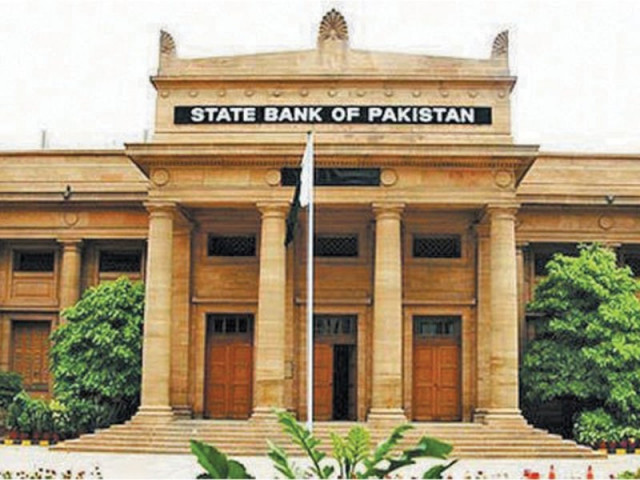Incentive cuts may hit remittances
SBP tells Senate panel inflows may shift back to informal channels, fall below $32b

State Bank of Pakistan (SBP) Acting Deputy Governor Dr Inayat Hussain cautioned on Wednesday that the government's decision to curtail subsidies for promoting foreign remittances, which hit a record $38 billion, may reduce the flow through banking channels.
The statement came amid a disagreement between the federal government and the central bank on shouldering subsidies in the new fiscal year 2025-26 under the Pakistan Remittance Initiative (PRI). The finance ministry has not allocated any sum for the scheme while the central bank has also shown its inability to provide funds.
The steps that the government has taken will push remittances back to the informal sector, said Inayat Hussain while speaking during a meeting of the Senate Standing Committee on Finance. Headed by Senator Saleem Mandviwalla, the committee had called the SBP to explain the reasons behind the faster increase in subsidies compared to remittances. In the past few years, the subsidies increased five times compared to a rise of only two times in remittances, said Mandviwalla.
The central bank reported on Wednesday that workers' remittances rose 26.6% to $38.3 billion in the just ended fiscal year. Pakistan became the fifth largest recipient of foreign remittances in the world.
The Pakistan Peoples Party government launched the PRI in 2009 when the amount remitted by overseas Pakistanis was just $7.8 billion. Remittances are now the single largest source of foreign earnings, which are even $6 billion higher than exports.
However, last month the government substantially reduced the remittance incentives and allocated nothing in the budget for this fiscal year compared to Rs85 billion for the last fiscal year.
Against the Rs85 billion allocation, the central bank billed Rs200 billion to the Ministry of Finance. Of the total cost, around 85%, or Rs170 billion, was under the Telegraphic Transfer (TT) Charges Scheme.
Additional Finance Secretary Amjad Mehmood told the standing committee that the federal cabinet had approved a revision of the scheme following a summary moved by the finance ministry.
The development came amid increasing pressure on the rupee, which further depreciated to Rs284.5 in the inter-bank market. In the open market, the rate was around Rs288 per dollar while in the grey market, the rate crossed Rs290, according to market players. The central bank issued a circular last week about revisions in the remittance scheme, which shows a substantial reduction in benefits for banks and exchange companies.
Inayat Hussain told the committee that the government raised the minimum eligible transaction size to $200 and introduced a flat rebate of 20 Saudi riyal (SAR) per eligible transaction, effective from July 1, 2025. The old rate was from SAR20 to SAR35, which the government has cut by 43%.
The TT Charges Scheme offers a zero-cost and free transfer model to the sender and receiver for eligible remittance transactions. The old model offered SAR20 reimbursement incentive for every transaction worth $100 and above, an additional per-transaction incentive of up to 10% on growth over the previous year and a further per-transaction incentive of SAR7 for growth exceeding 10% over the previous year.
The federal government also decided that a mechanism should be established for gradually phasing out the Remittance Incentive Schemes. In that regard, the SBP would propose and present an evidence-based plan by factoring in the cost-benefit analysis of the existing schemes, Raast integration with Buna and SAMA gateways, and strengthening controls vis-a-vis the transfer of remittances through formal channels. The central bank deputy governor expressed concerns over these changes and any future plan to discontinue the scheme. "The scheme is very critical in bringing remittances from the informal sector to the formal sector," he emphasised.
The government has also abolished the Exchange Companies Incentive Scheme (ECIS) under which these companies were getting up to Rs4 per dollar subsidy from the government.
People were attributing the increase in remittances to the Financial Action Task Force (FATF)-related measures by foreign governments but the fact is that remittances were so small that these do not fall under the FATF purview, said Hussain.
The deputy governor said that it was wrong to say that only banks were benefiting from the scheme as foreign remitters were also the beneficiaries.
Despite reducing the benefits from July 1, the Ministry of Finance has not allocated any money for the remittance scheme.






















COMMENTS
Comments are moderated and generally will be posted if they are on-topic and not abusive.
For more information, please see our Comments FAQ